We may earn revenue from the products available on this page and participate in affiliate programs. Learn More ›
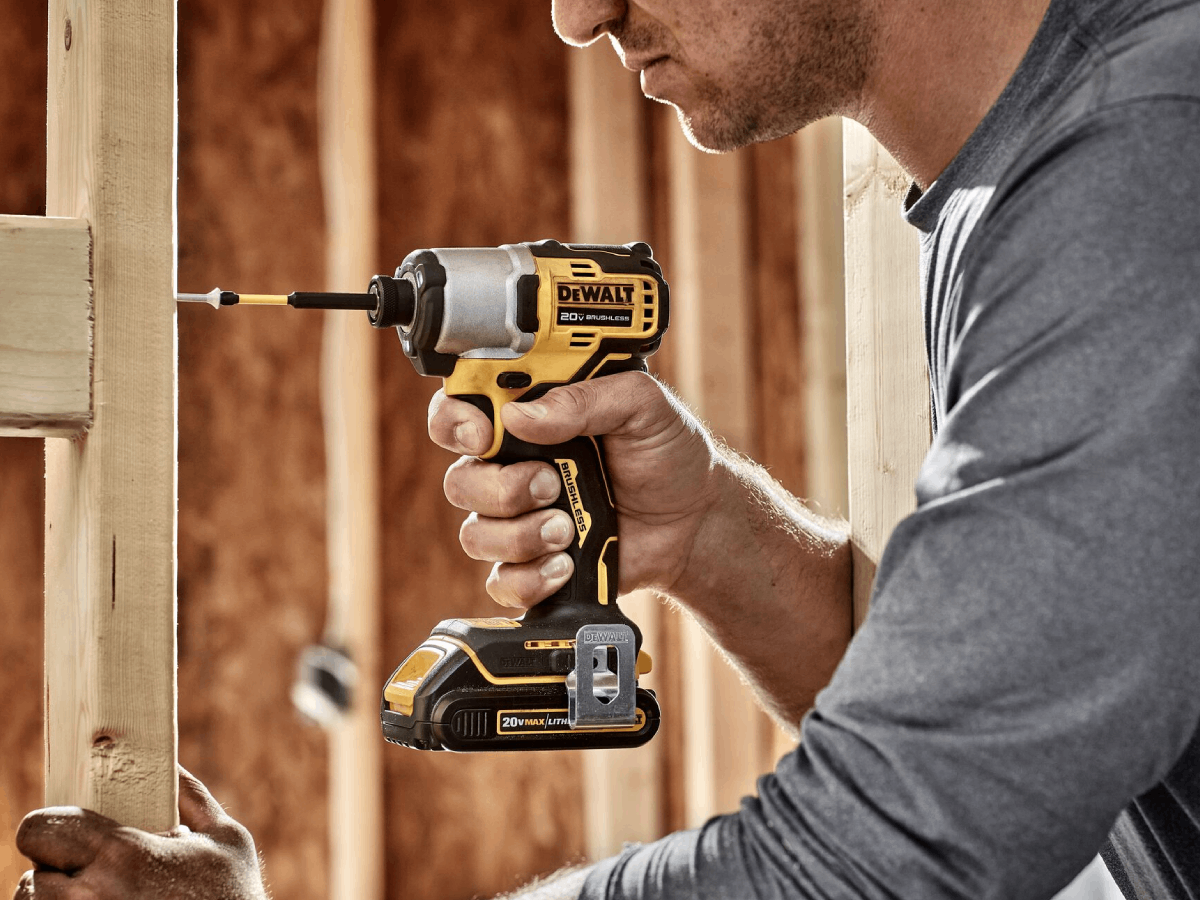
No matter the occasion, it’s always a great time to remind Dad just how much he means to us. If your dad enjoys fixing things around the house, working in the yard, or tinkering with the car, what better way to say “you’re the best” than with a shiny new tool.
➤ GIFTS FOR DAD: 43 Best Father’s Day Gifts for the Dad Who Has Everything
With so many different types of tools—from drills to wrench sets—deciding just what to buy for him can feel a bit overwhelming. To help, our experts at Bob Vila have rounded up the best tool gifts for Dad. Whether it’s a Dremel rotary tool kit, a new DeWalt saw, or a sleek Leatherman multi-tool, it’s something every DIY-loving dad is certain to enjoy.
1. DeWalt Lighted Tool Backpack
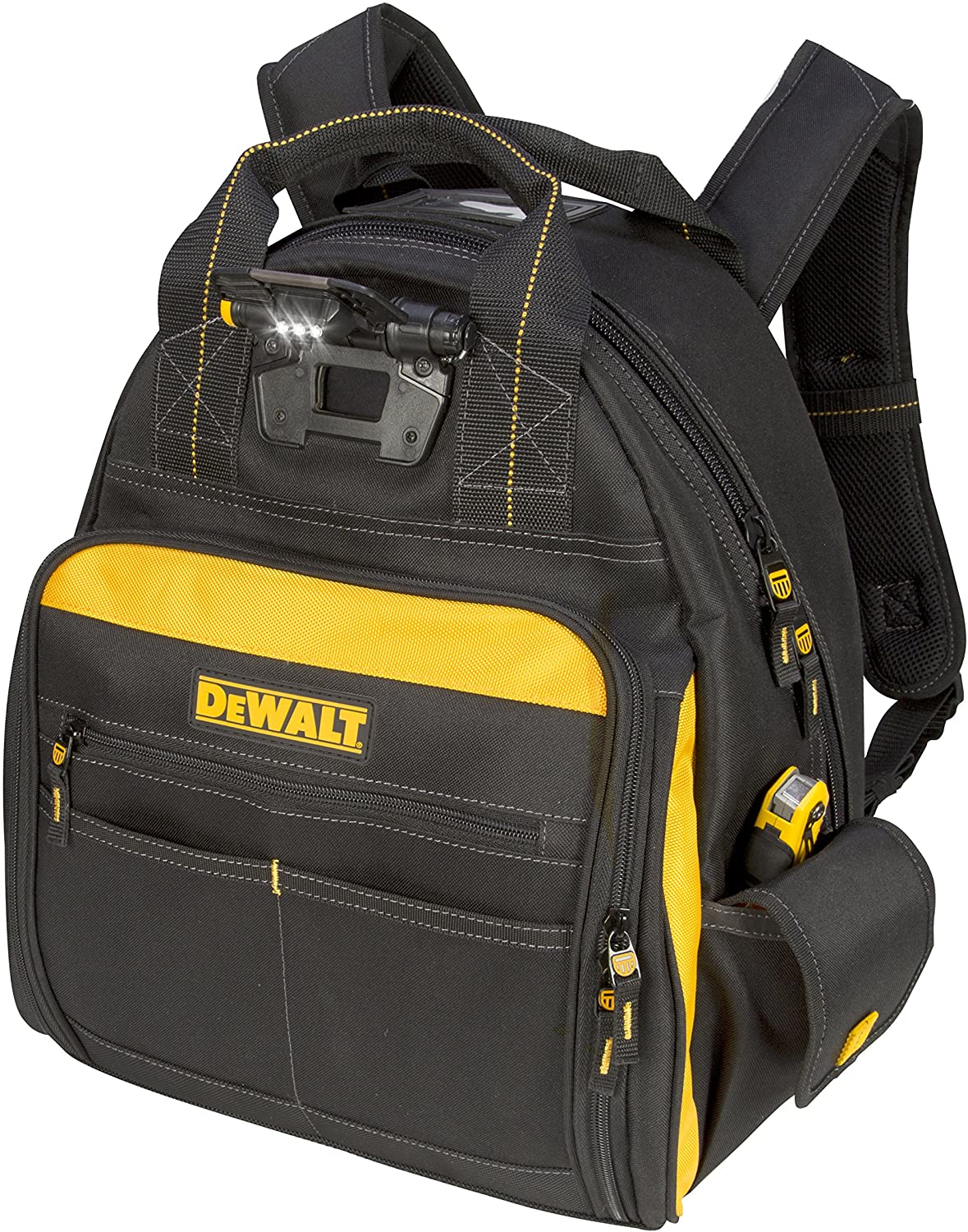
The lighted tool backpack from DeWalt can help Dad keep all of his tools and accessories organized and ready for use. With 48 interior and 9 exterior multi-use pockets, it holds screwdrivers, wrenches, drills, hammers, pliers, extension cords, and more. One of the key features of this backpack—which comes very highly recommended from customers—is the integrated LED light that can be directed towards a work area or to the interior of the bag to more easily find the right tool for a specific job.
Get the DeWalt Lighted Tool Backpack on Amazon for $109
2. Black + Decker 20V Max Cordless Drill/Driver
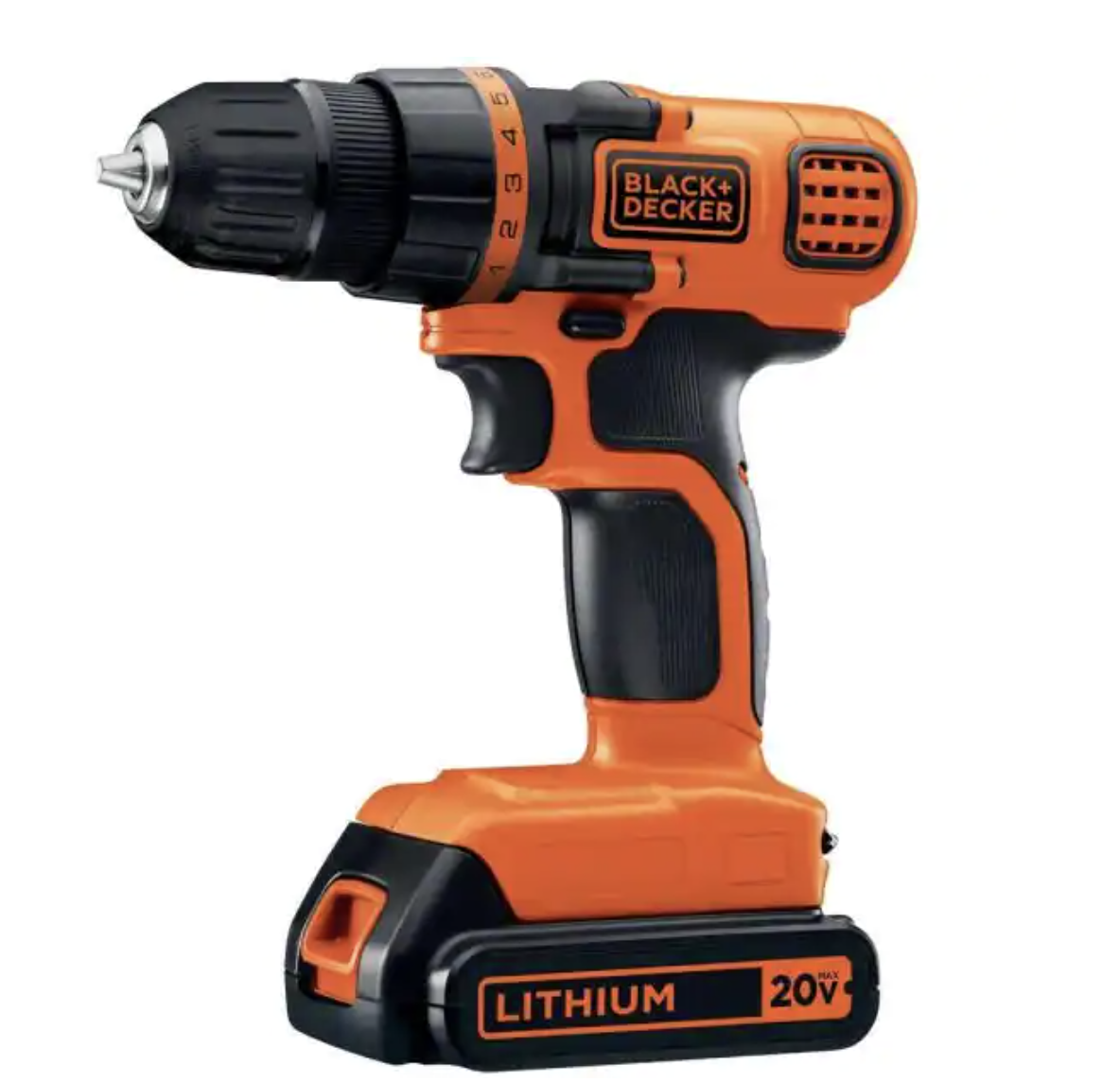
When you’re looking for the best Father’s Day gift ideas, you can’t go wrong with this cordless drill from Black + Decker with over 27,000 positive reviews. Our experts also chose this model as the best bang for the buck in the world of cordless drills. The drill offers a lightweight and long-lasting battery, an 11-position clutch for enhanced control, variable speed settings, and an integrated bit holder.
Get the Black + Decker 20V Max Cordless Drill/Driver at The Home Depot for $64
3. Leatherman Wingman Multitool
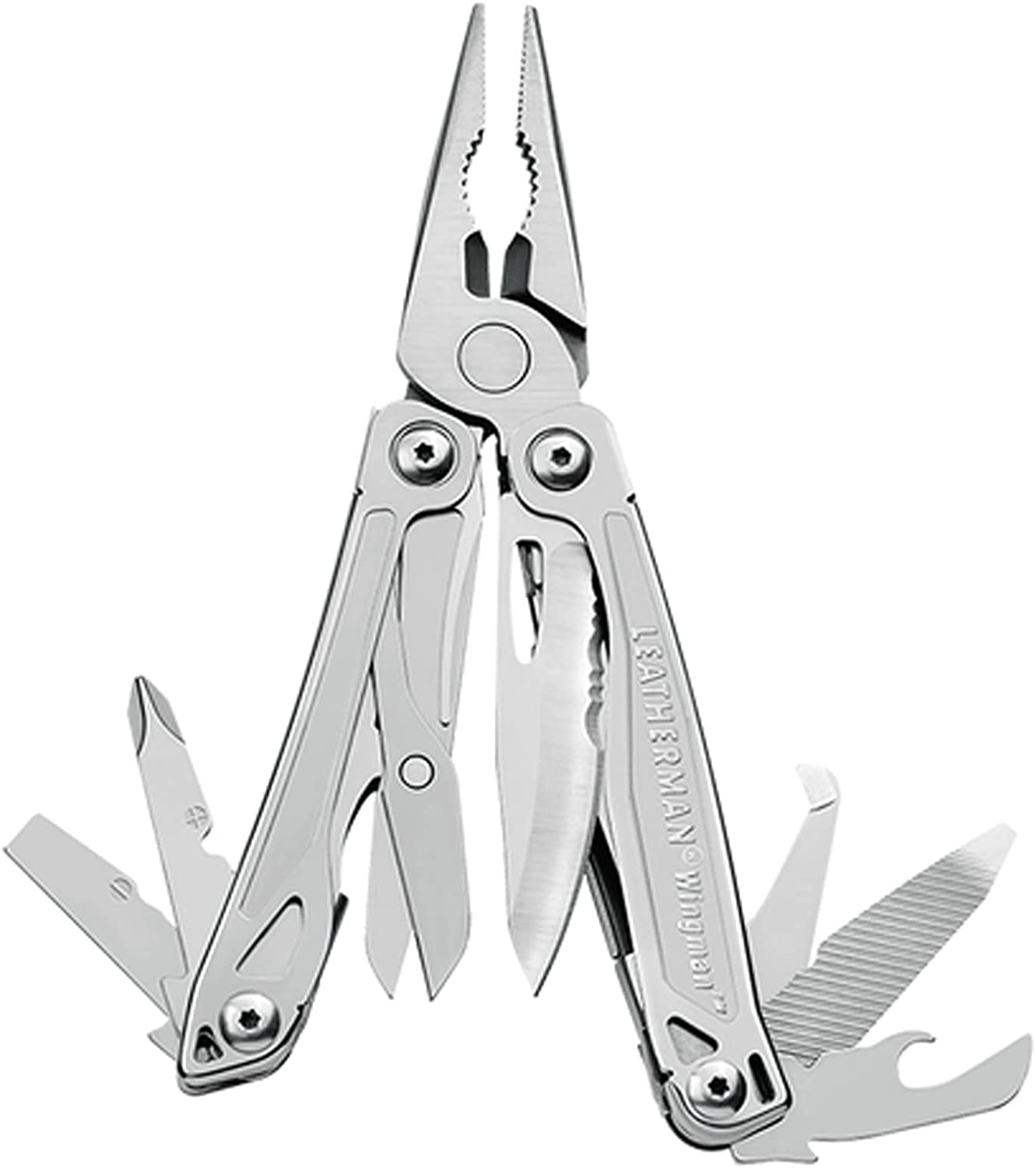
The Leatherman Wingman Multitool will keep Dad prepared at all times with 14 tools in his pocket. A knife, screwdriver, wire cutter, scissors, bottle opener, can opener, and various other tools are all integrated into the lightweight and easy-to-open tool, which is designed around spring-action solid steel pliers. In reviewing the best multitools, our experts noted that this one offers a high-quality feel with a polished and durable surface.
Get the Leatherman Wingman Multitool on Amazon for $63.36
4. Bosch Laser Distance Measure

Dad will love how much easier this expert-approved digital tape measure makes his life. The tool provides accurate measurements within ⅛-inch for distances up to 65 feet. Its one-button operation, backlit display, and ability to stand up on its own are just a few of the features that make this model so popular with over 11,000 reviewers.
Get the Bosch Laser Distance Measure on Amazon for $46.99
5. DeWalt 10-Inch Table Saw
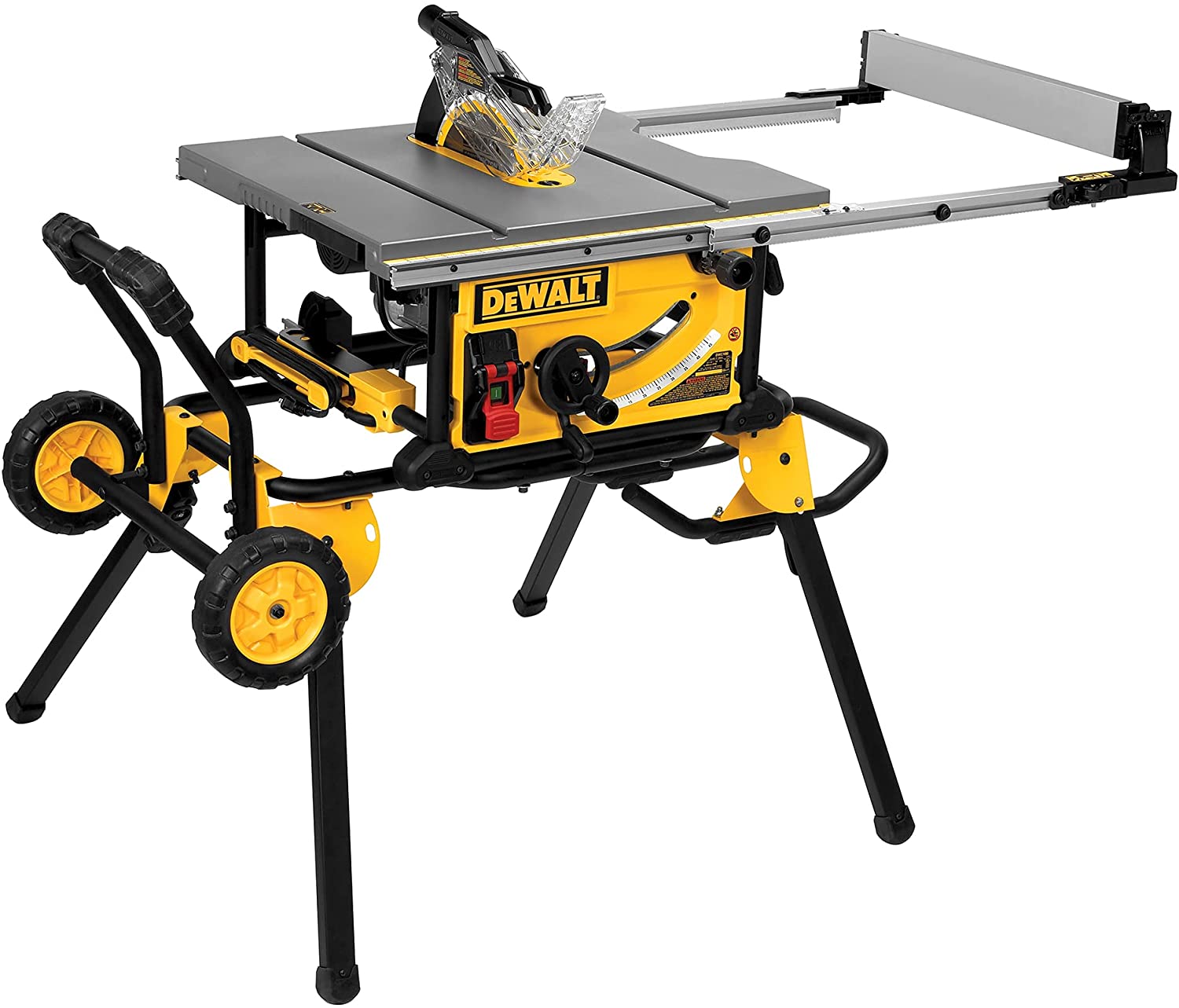
If Dad is a true DIYer, he’ll easily come up with multiple ways to use this highly rated 10-inch table saw from DeWalt. It comes fitted with a 24-tooth carbide-tipped blade with maximum depth cut of 3 ⅛ inches at 90 degrees and 2 ¼ inches at 45 degrees. It also offers a rack and pinion telescoping fence system for quick and accurate adjustments. The saw’s rolling stand and superb stability helped it to earn the top spot in our guide to the best portable table saws.
Get the DeWalt 10-Inch Table Saw on Amazon for $529
6. Irwin Vise-Grip Wire Stripping Tool and Wire Cutter
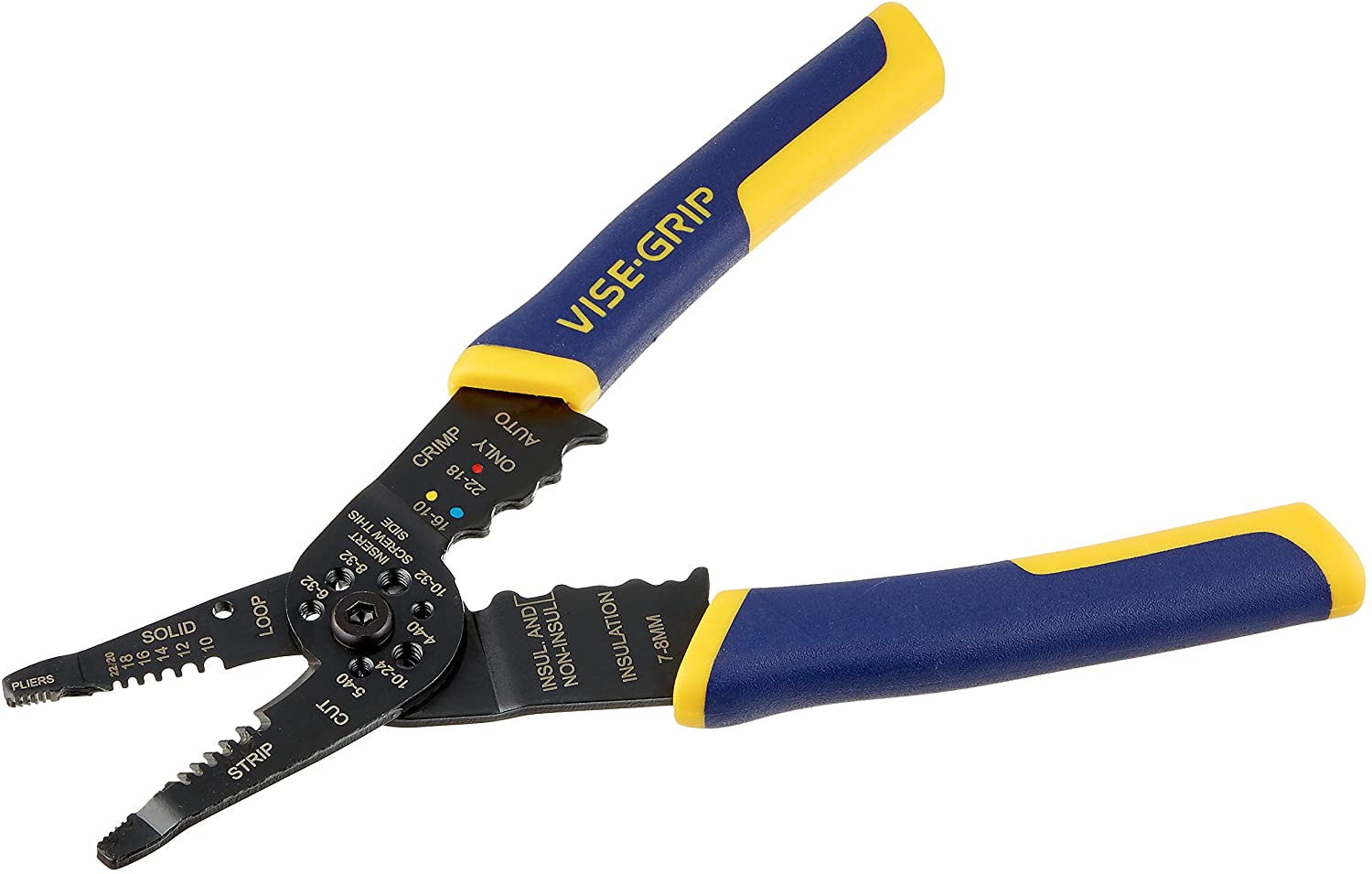
Next time Dad needs to do any electrical work, he’ll be glad to have the best wire cutters and wire stripping tool from Irwin. This pair—with over 16,000 Amazon reviews—is designed with comfort, durability, and ease of use in mind. The wire cutters feature heavy-duty induction hardened haws with a needle-nose end to easily snap wires of all gauges. Irwin also added labeled slots to strip wires between 10 and 20 AWG, as well as a crimper to use when splicing wires.
Get the Irwin Vise-Grip Wire Stripping Tool/Wire Cutter on Amazon for $13.99
7. Dremel High Performance Rotary Tool Kit
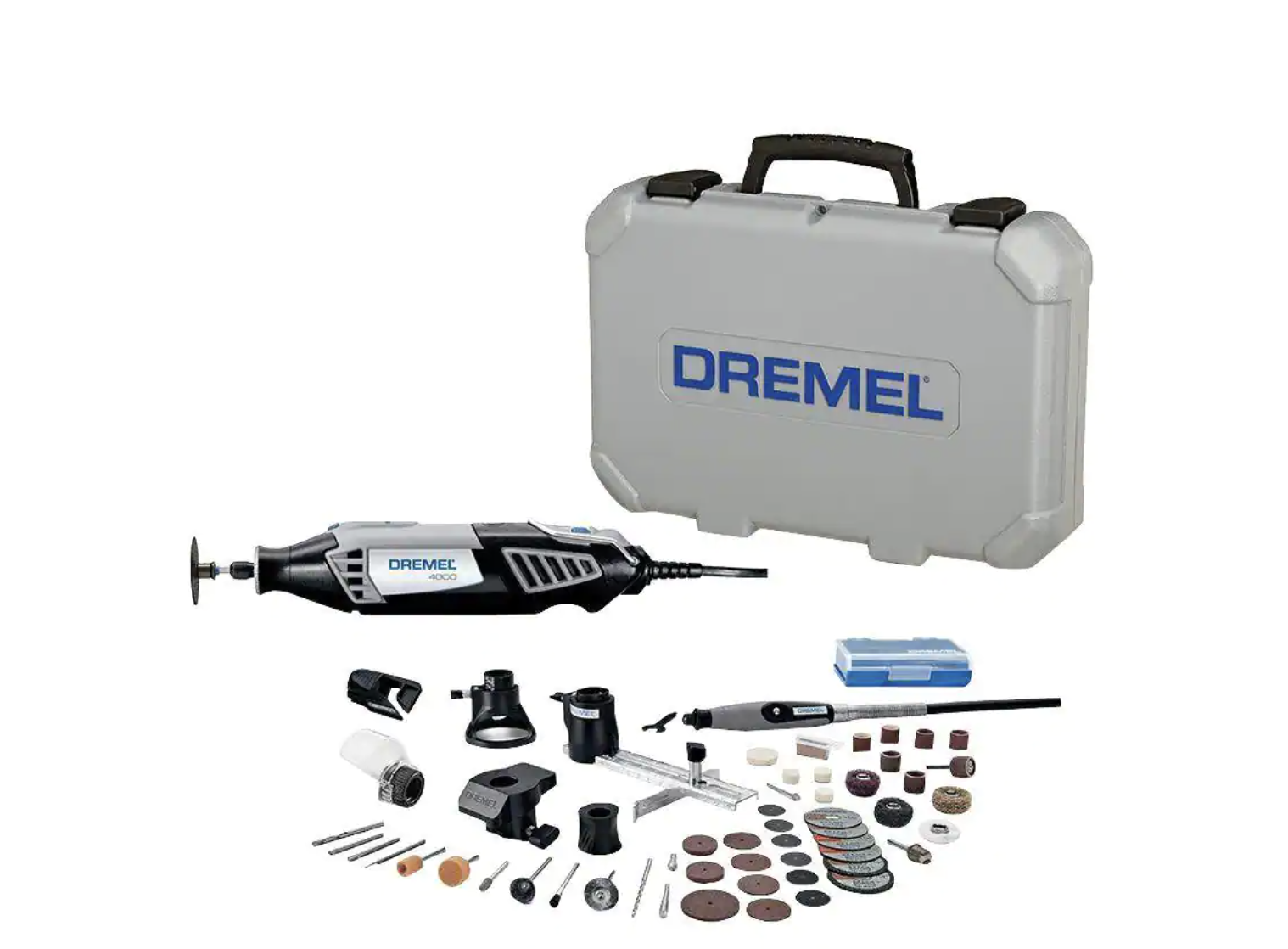
This Dremel rotary tool kit is a versatile addition to any workbench. The tool—which has over 9,000 reviews and earned the top spot in our guide to the best rotary tools—comes with a storage case, 40 accessories, and five attachments. With all of these different components, it can be used for a variety of applications, such as sanding, cutting, grilling, and carving. The 5,000 to 35,000 RPM variable speed motor gives the user complete control over each task, and there’s even a rotating pivot light to illuminate dim or dark spaces.
Get the Dremel High Performance Rotary Tool Kit at The Home Depot for $149
8. Wera Kraftform Micro Screwdriver Set
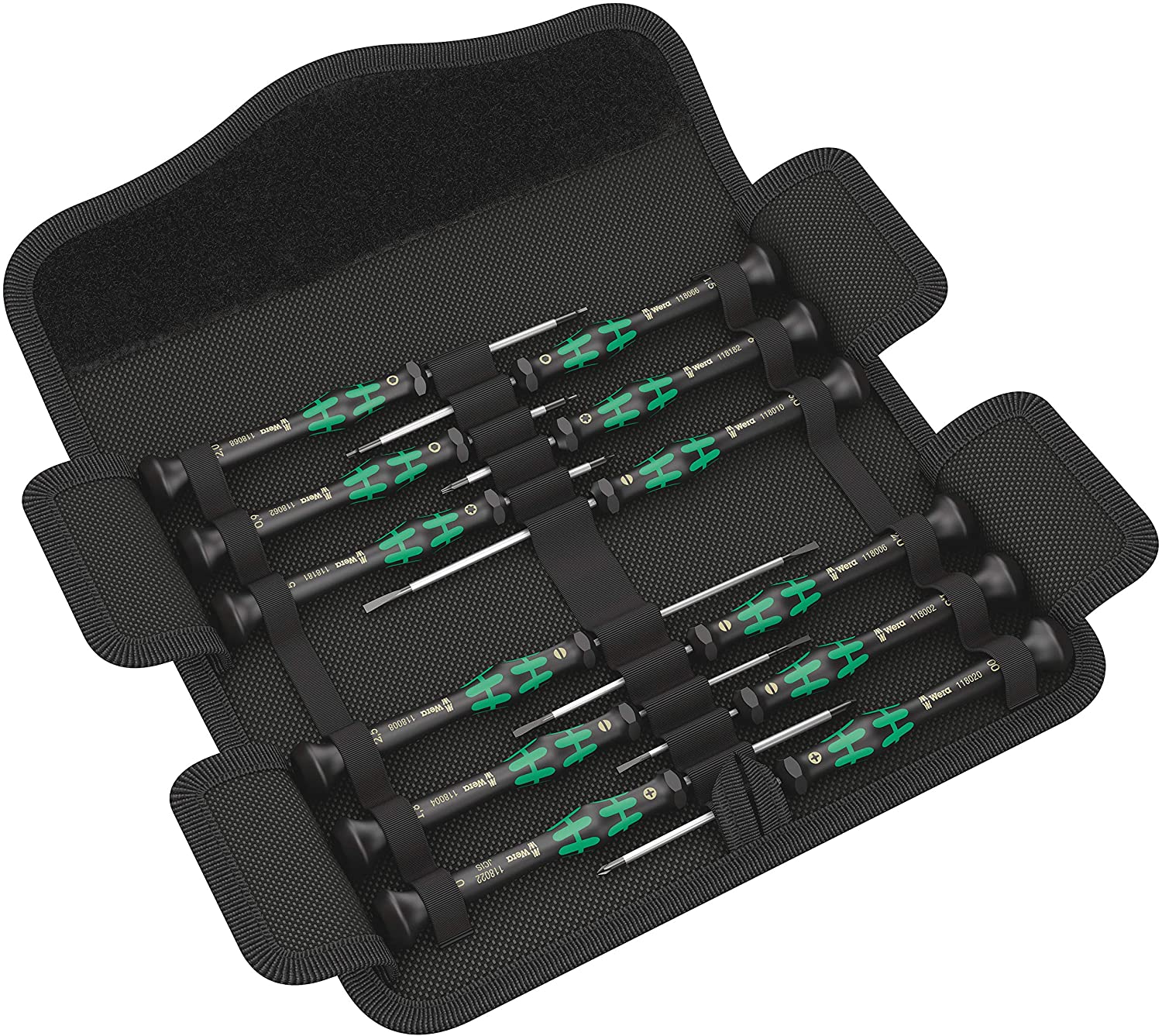
Sometimes a standard-sized screwdriver just won’t cut it. Enter this set of precision screwdrivers from Wera, which can make sure Dad has the right tool for every job. After evaluating the handle design and overall comfort of the set, our experts dubbed it the best ergonomic option. We also liked the countered and rotating end caps that allow you greater control over how quickly the screw or fastener spins.
Get the Wera Kraftform Micro Screwdriver Set on Amazon for $52.84
9. Westinghouse Gas-Powered Pressure Washer
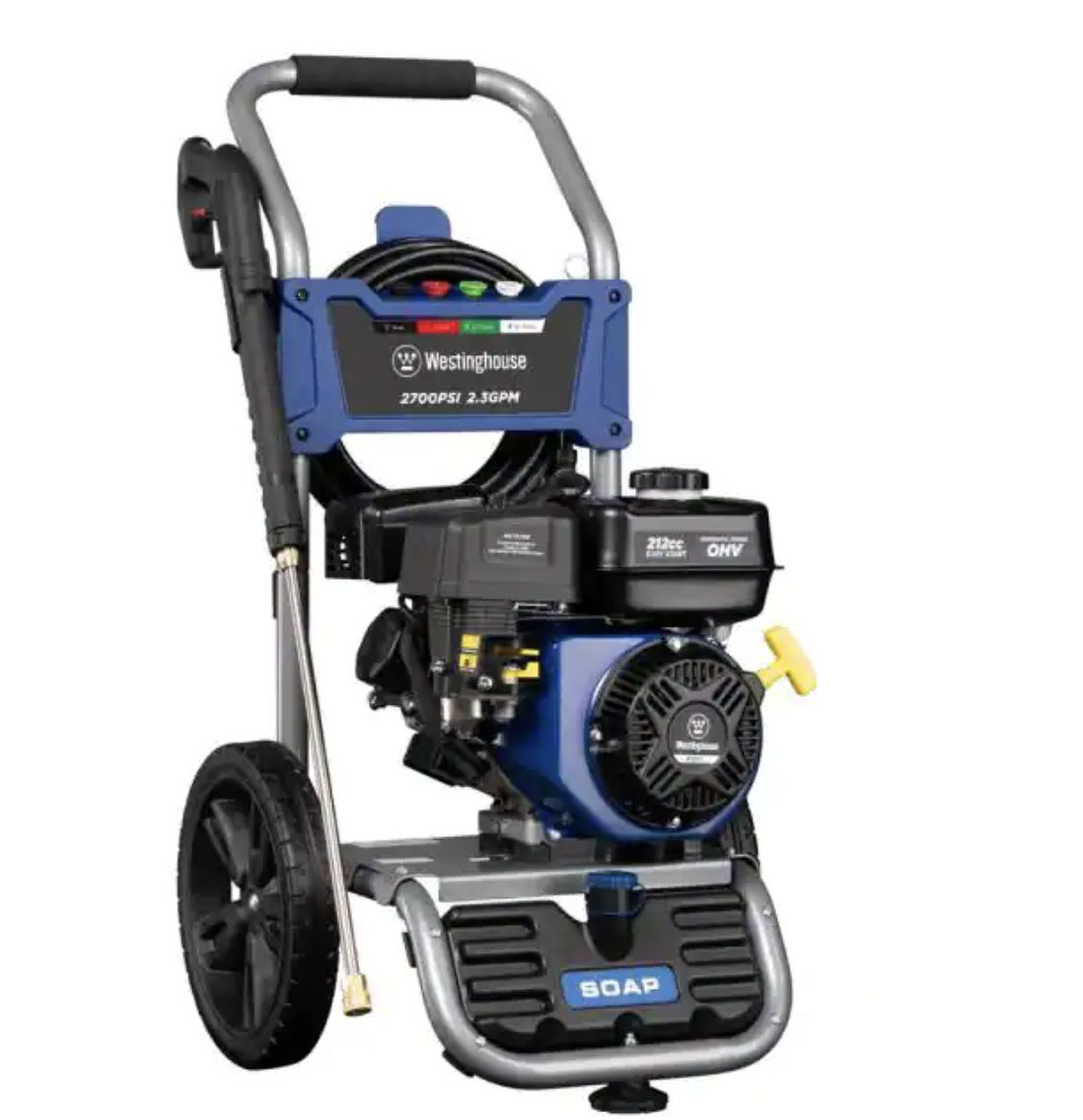
Help Dad clean up the exterior of his home with this gas-powered pressure washer. Offering 2,700 PSI, 2.3 GPM of pressure, a 25-foot flexible hose with spray gun, and four nozzles, this tool can remove gunk and grime from sidewalks, siding, decks, rails, fences, patio furniture, and more. When testing the best pressure washers, our experts also touted its maneuverability, compact size, and built-in detergent tank.
Get the Westinghouse Gas-Powered Pressure Washer on Home Depot for $299
10. Slonik Headlamp
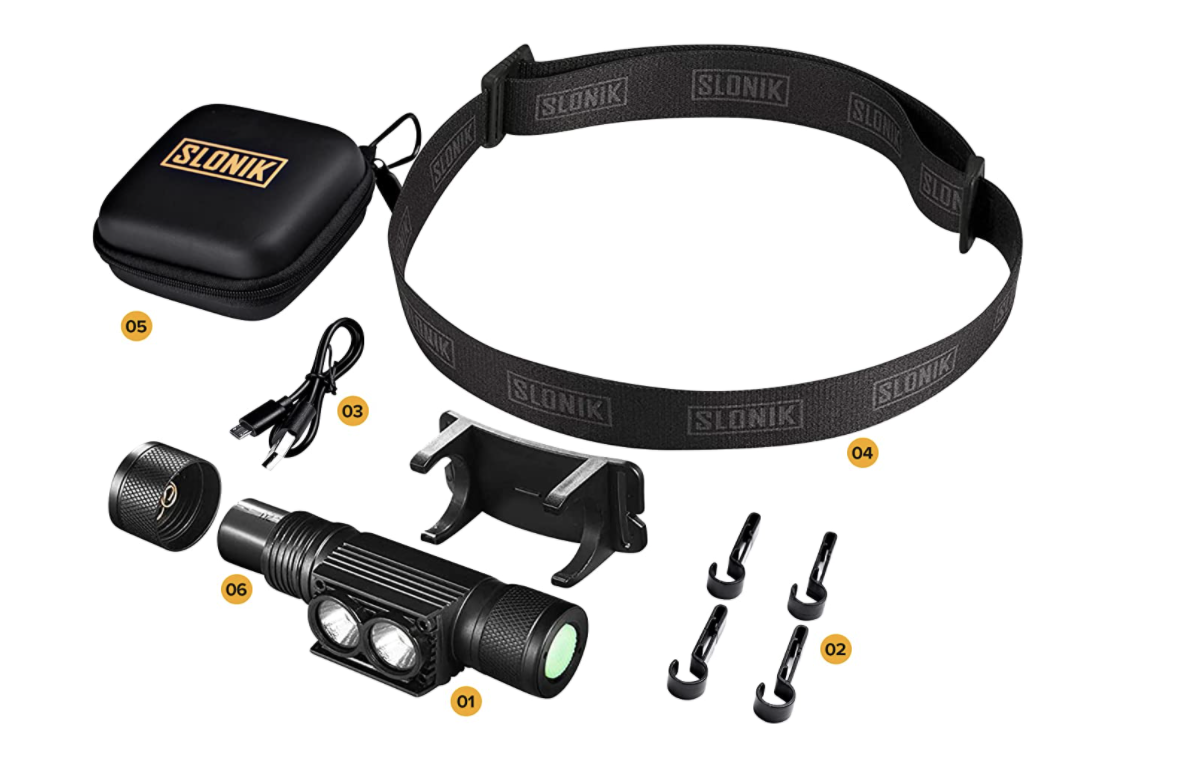
Help Dad illuminate his work areas with the Slonik Headlamp—an Amazon customer favorite with over 12,000 reviews. Selected as the best for brightness in our guide to the best headlamps, this model features a 1,000-lumen light, capable of casting a 60-foot beam of light. It has six levels of brightness and an adjustable nylon band that can be worn around the head, used as a handheld flashlight, or even mounted on a hard hat.
Get the Slonik Headlamp on Amazon for $35.58
11. Craftsman Mechanics Tool Set
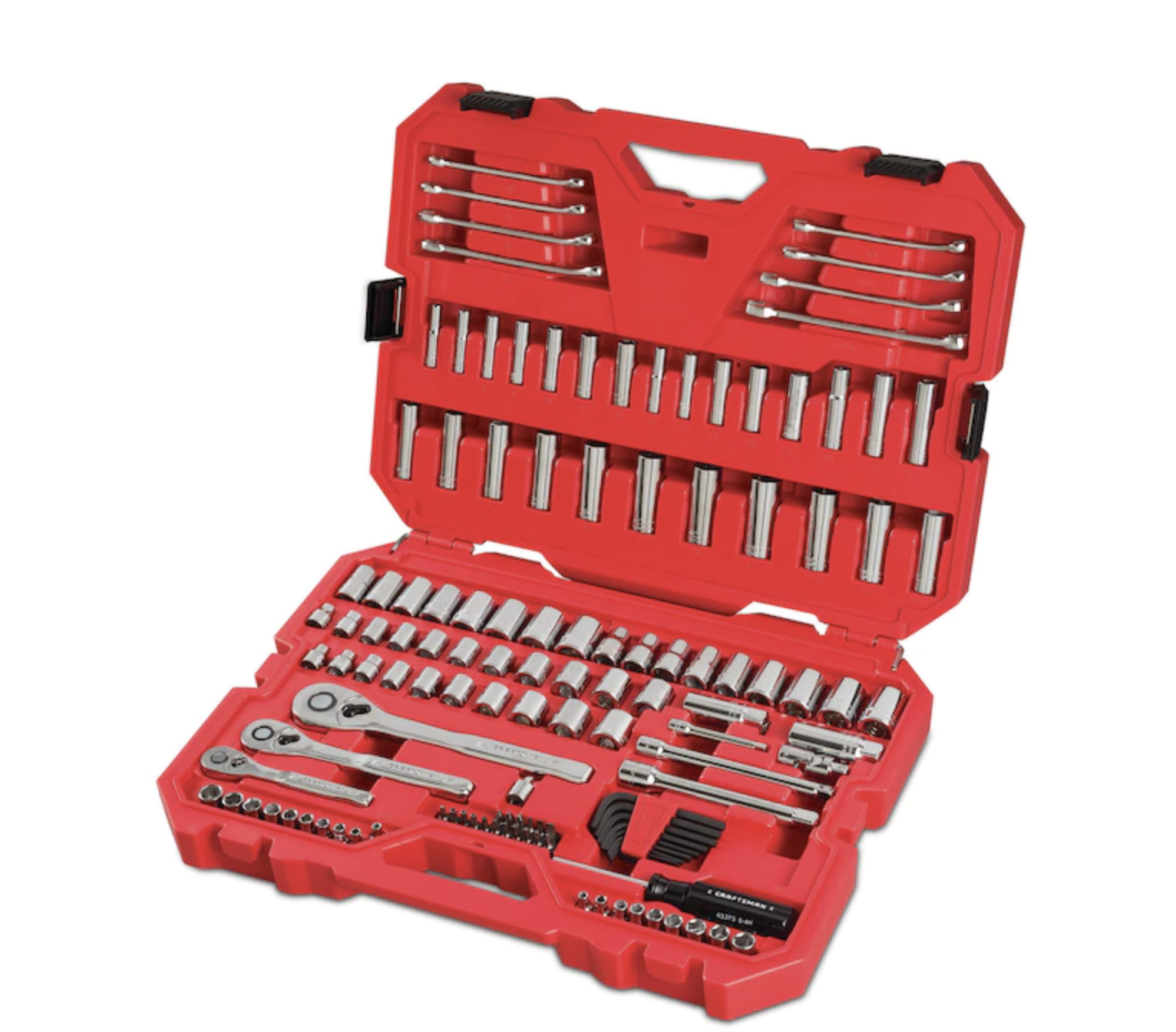
The Craftsman Mechanics Tool Set is designed to provide DIY car enthusiasts with the ratchets, sockets, drivers, and other attachments they’ll need to maintain their vehicle. The pieces in this 135-piece set—the pick for the best socket set in our list of the best tools—feature a polished chrome finish that resists corrosion. A red blow-molded storage case is included to keep all the components organized and easy to find.
Get the Craftsman Mechanics Tool Set at Lowe’s for $145
13. DeWalt Framer’s Combo Apron
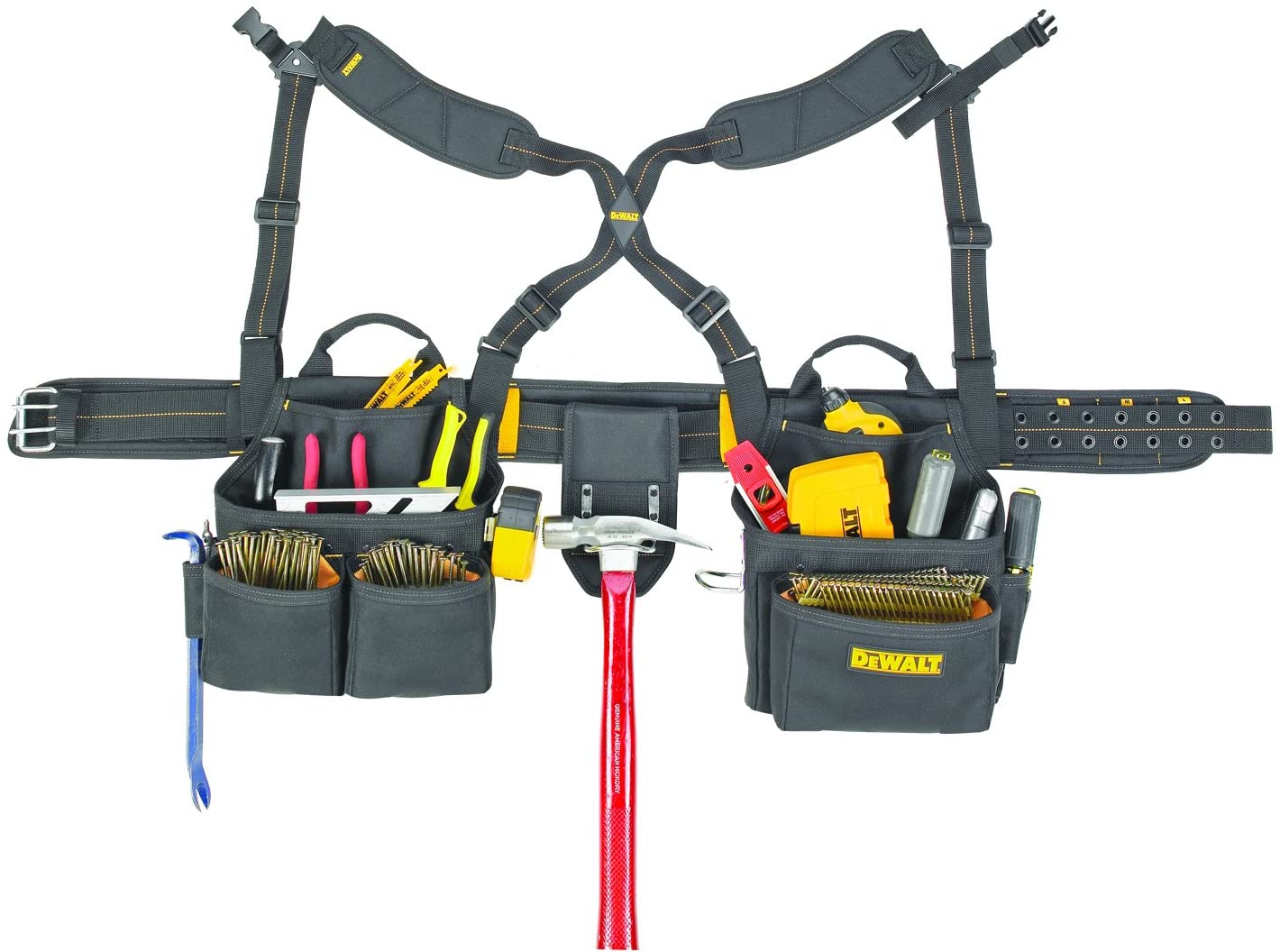
If you’ve noticed Dad running back and forth to grab a different tool while working, then one of the best Father’s Day gifts you can get him is this combo apron to keep all of his tools within easy reach. The top overall pick in our roundup of the best tool belts, the adjustable apron offers 20 pockets to hold tools, nails, pencils, and other accessories. To keep him comfortable and minimize back pain, it also features padded suspenders to ensure even weight distribution.
Get the DeWalt Framer’s Combo Apron with Suspenders on Amazon for $76.45
14. Green Mount Watering Wand

This watering wand sprayer head from Green Mount can make a wonderful gift for dads who enjoy taking care of their lawn and garden. The uniquely-designed 24-inch sprayer wand makes it easier to water bushes, shrubs, and garden beds with its slightly curved design. When reviewing the best tools for lazy gardeners, our experts found that the angled head is also ideal for watering hanging plants and the handle has a hold-open clip to allow for continuous water spraying.
Get the Green Mount Watering Wand on Amazon for $27.99
15. Wera Multicolor L-Key Set
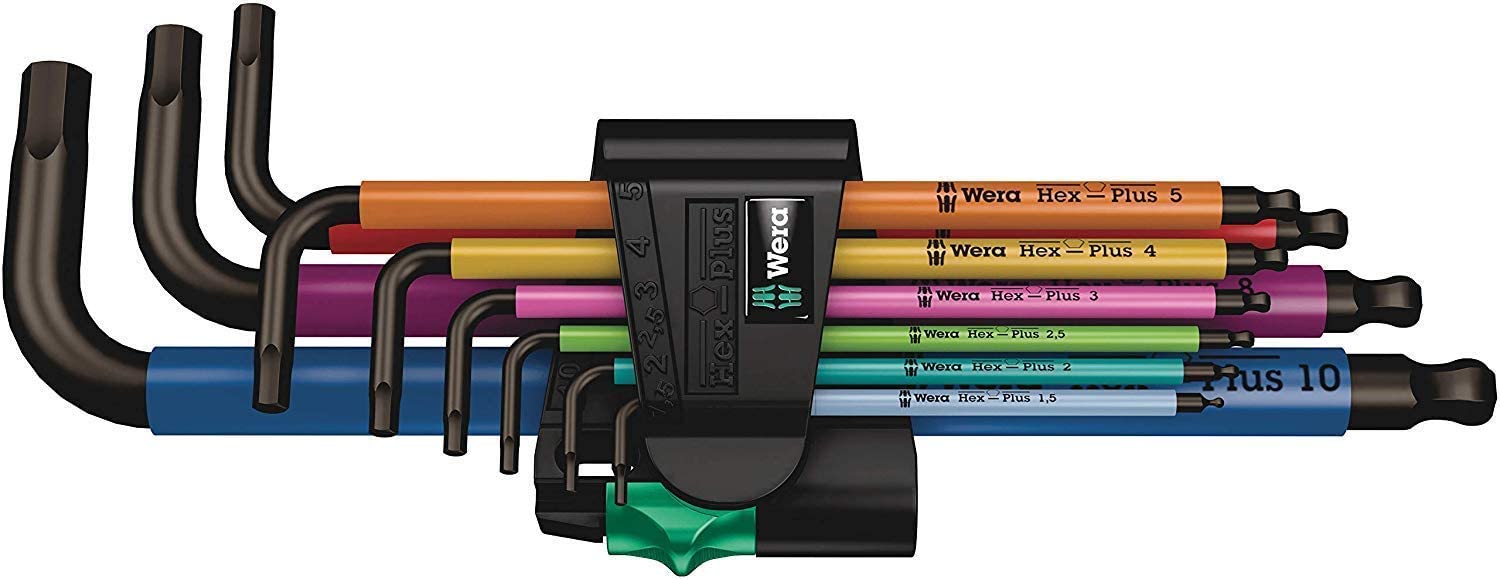
A good Allen wrench set is another top contender in this roundup of the best tool gifts for dad. Each wrench in this 9-piece set from Wera is color-coded with both printed and laser-engraved markings to make it easier to always grab the right tool. The wrenches are coated with a chip-resistant coating, adding to their overall quality and durability.
Get the Wera Multicolor L-Key Set on Amazon for $44.69
16. Greenworks Brushless Cordless Blower/Vacuum
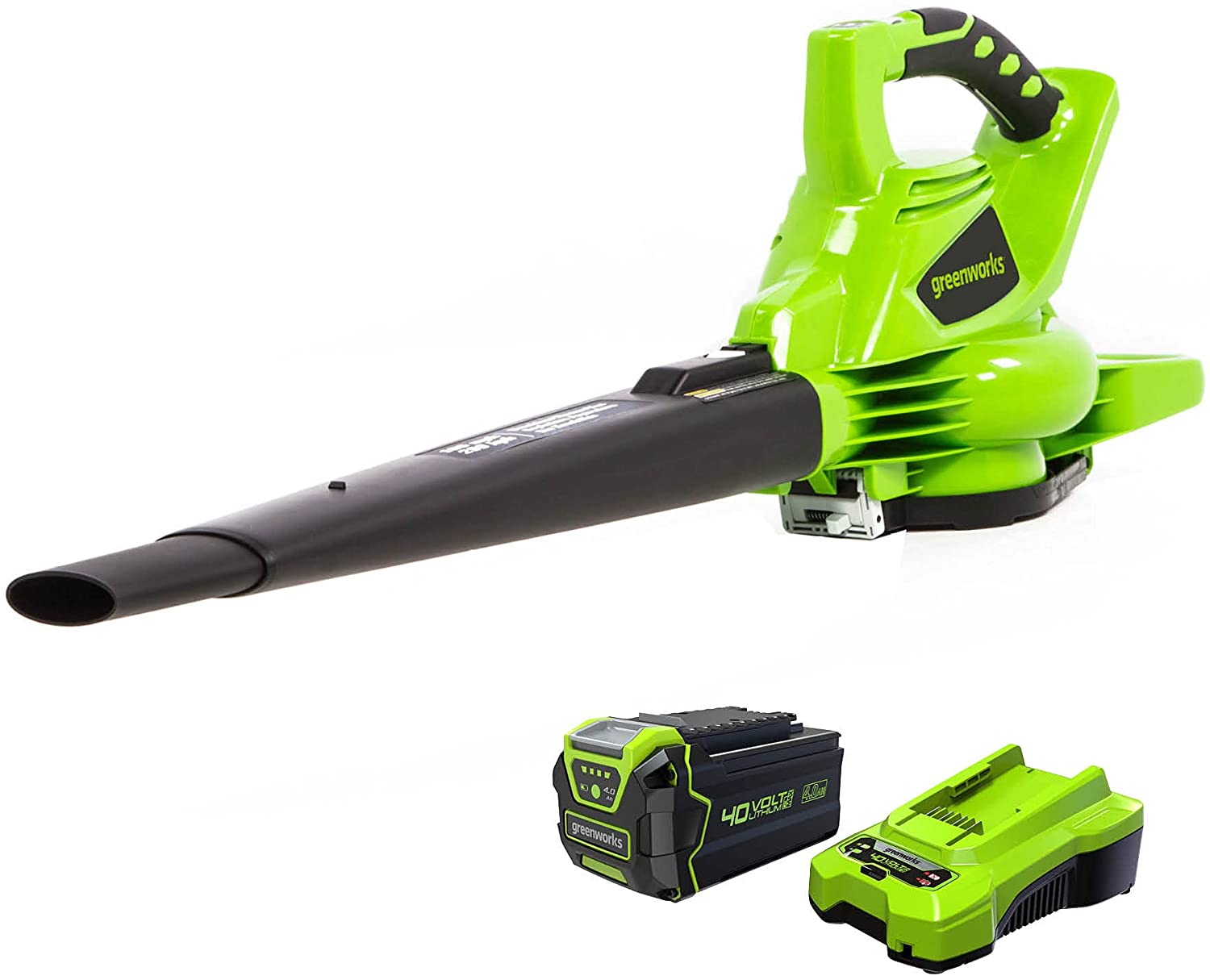
Give Dad more power to clean up his lawn quickly and easily with this cordless leaf blower from Greenworks. With its brushless motor for high performance and the 6-speed dial, this all-in-one tool also works as a leaf vacuum and mulcher, which is why our experts named it the best leaf blower.
Get the Greenworks Brushless Cordless Blower/Vacuum on Amazon for $239.90
17. Knipex Cobra Water Pump Pliers

Pliers are such a necessary tool to maintain a firm grip on an object for a variety of purposes, such as tightening a bolt, removing a stuck object, or holding a pipe that you’re cutting. Dad will come up with plenty of uses for these comfortable and easy-to-use Cobra water pump pliers, which our experts love. Made from a durable oil-hardened chrome-vanadium material, the tongue-and-groove pliers have a 10-inch handle with push-button adjustments to make it easier to modify one’s grip without opening the jaws.
Get the Knipex Cobra Water Pump Pliers on Amazon for $32.78
18. Custom Leathercraft Handyman Flex-Grip Work Gloves
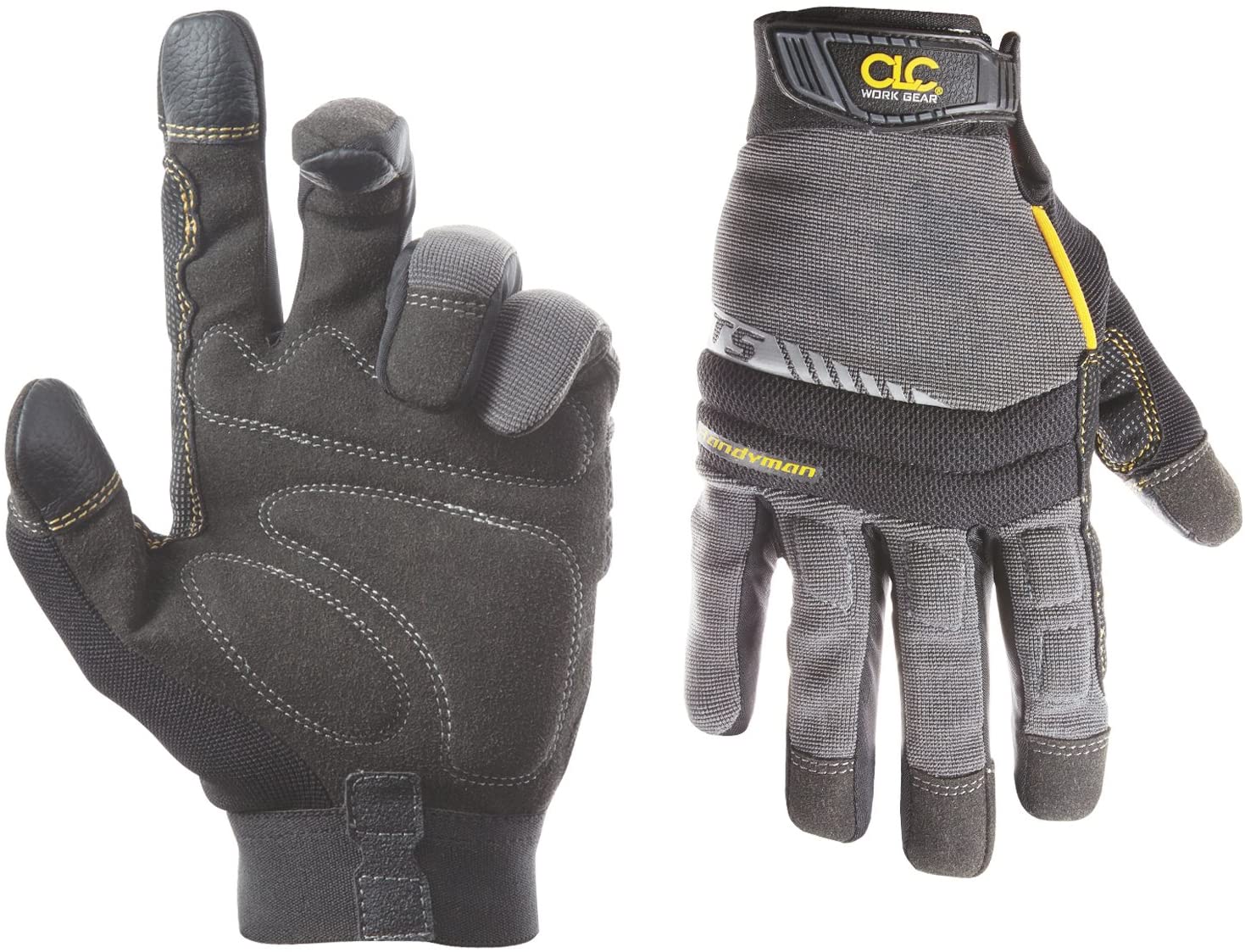
Work gloves can protect one’s hands from injury, calluses, and more. Our experts chose this pair of flex-grip work gloves from Custom Leathercraft as their top pick for men. Made from synthetic leather with concealed inner stitching, these gloves are comfortable, shrink-resistant, and snag-proof. They also offer a wing closing strap to keep the gloves in place and keep them from sliding off when Dad is working.
Get the Custom Leathercraft Handyman Flex-Grip Work Gloves on Amazon for $18.28
19. Worx GT Revolution 12-Inch Grass Trimmer/Edger
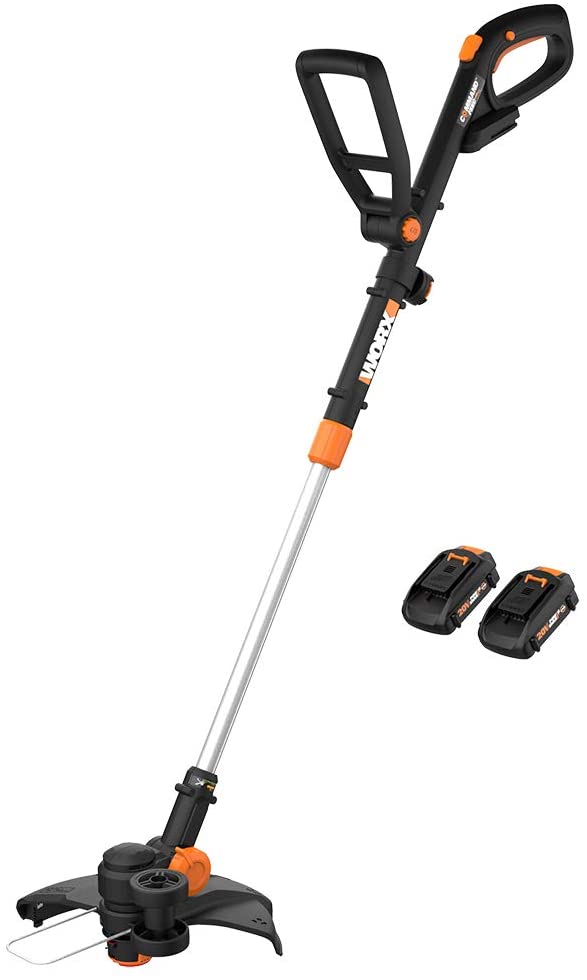
Dad can give his yard a manicured appearance with the Worx Revolution, which we featured as one of the best string trimmers. The lightweight and versatile tool works as a string trimmer, in-line wheeled edger, and mini mower. There are seven different handle positions and six rotating head positions to help him stay comfortable while working in the yard—part of the reason this tool is so highly reviewed by over 6,000 Amazon customers.
Get the Worx GT Revolution 12-Inch Grass Trimmer/Edger on Amazon for $139.99
20. Cuisinart Deluxe Grill Set
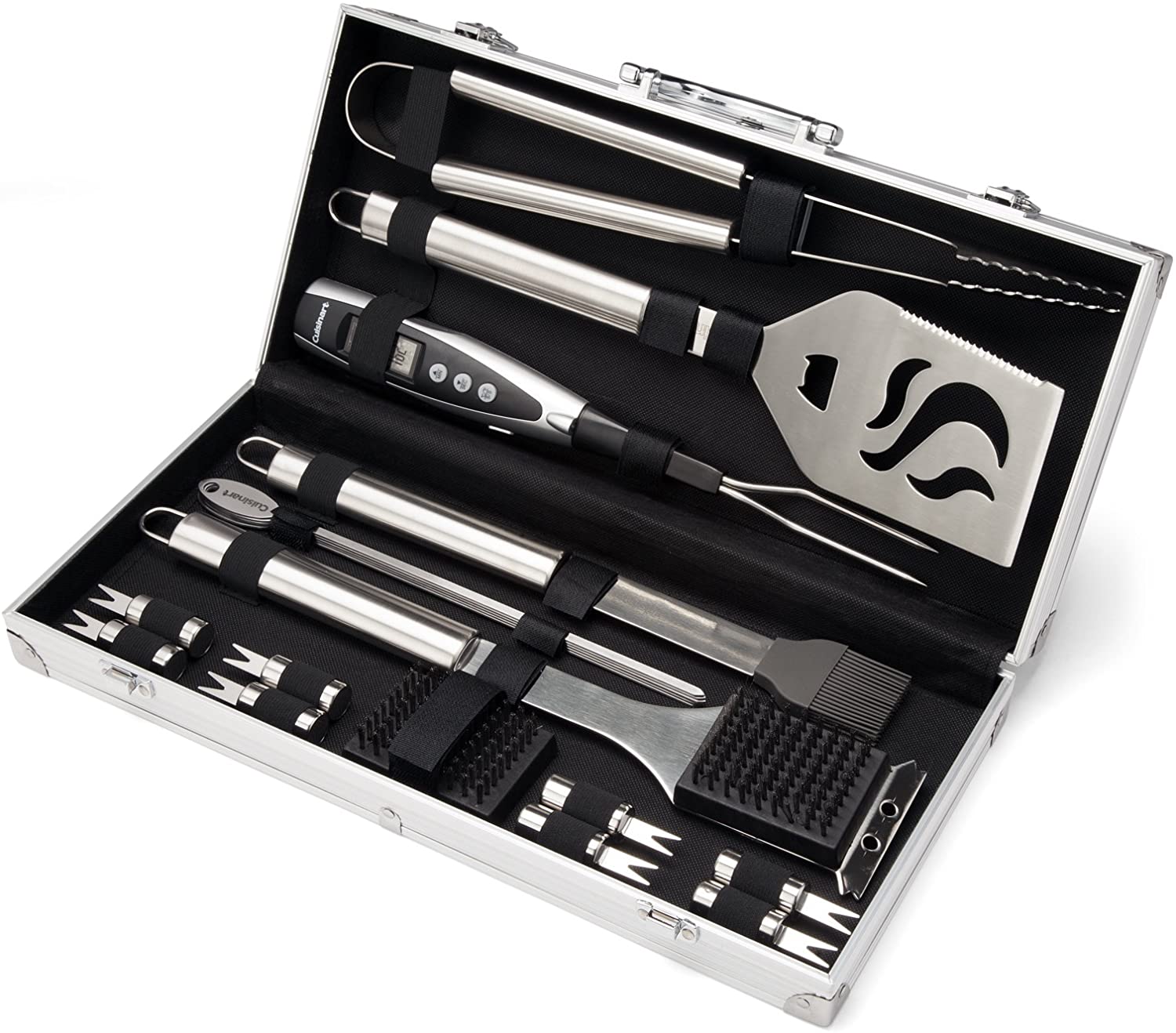
With this top-rated grill set from Cuisinart, Dad will have everything he needs to hold onto his title of Grill Master. The set comes with 20 grilling tools and accessories, including a spatula, tongs, basting brush, digital temperature forks, cleaning brush, corn holders, and skewers. The stainless steel finish of each piece will allow Dad to grill in style and it even comes with a sleek aluminum carrying case.
Get the Cuisinart Deluxe Grill Set on Amazon for $69.99
The prices listed here are accurate as of publication on 5/31/22.